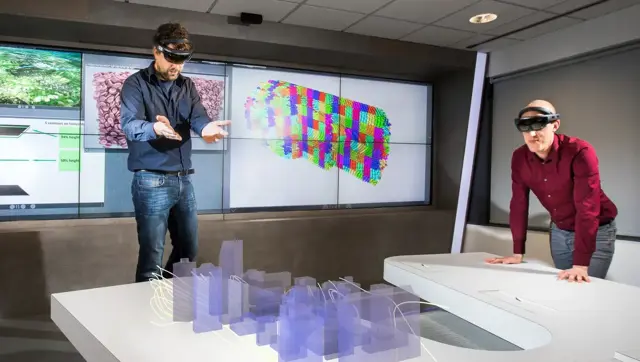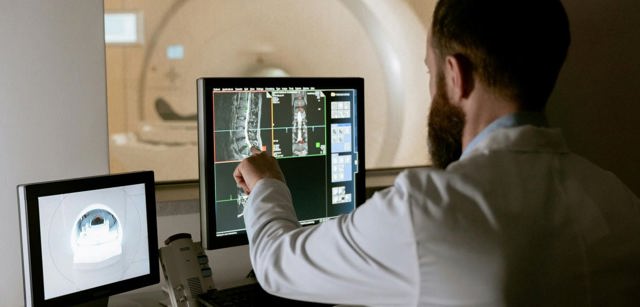April 4, 2025
AI model aids in assessing muscle health in people with lower back pain
Lower back pain is a common condition that is expected to become even more prevalent due to population growth and ageing. “This leads to increased healthcare demand and rising costs,” says physiotherapist and researcher Eddo Wesselink, “so it’s essential to better understand the contributing factors behind back pain.”
In his PhD research at Vrije Universiteit Amsterdam, Wesselink developed an AI model that assesses muscle health using MRI scans. Using computer vision techniques, he analysed large and diverse datasets to explore the relationship between muscle condition and back pain.
The research shows that poor muscle health is not always linked to pain but is more common in individuals with chronic lower back pain. It also appears to predict recovery after surgery in patients with central canal stenosis—a condition that causes leg pain during walking. However, the study found only limited evidence that fat infiltration in back muscles can be reduced through exercise therapy.
Traditionally, assessing muscle health with MRI is time-consuming, which limits researchers to small sample sizes or less reliable methods. Wesselink’s AI model makes this process significantly more efficient and is now publicly available to support further research.
He also developed a foundation for a reference standard that allows healthcare professionals to assess muscle health in relation to a person’s age, sex, and BMI. This paves the way for more accurate diagnoses and personalised treatment for individuals suffering from lower back pain.
Vergelijkbaar >
Similar news items

April 4, 2025
Amsterdam strengthens position as major AI hub and tech city
read more >

April 4, 2025
AI model aids in assessing muscle health in people with lower back pain
read more >
April 4, 2025
VU launches AI platform Nebula for secure access to language models
read more >